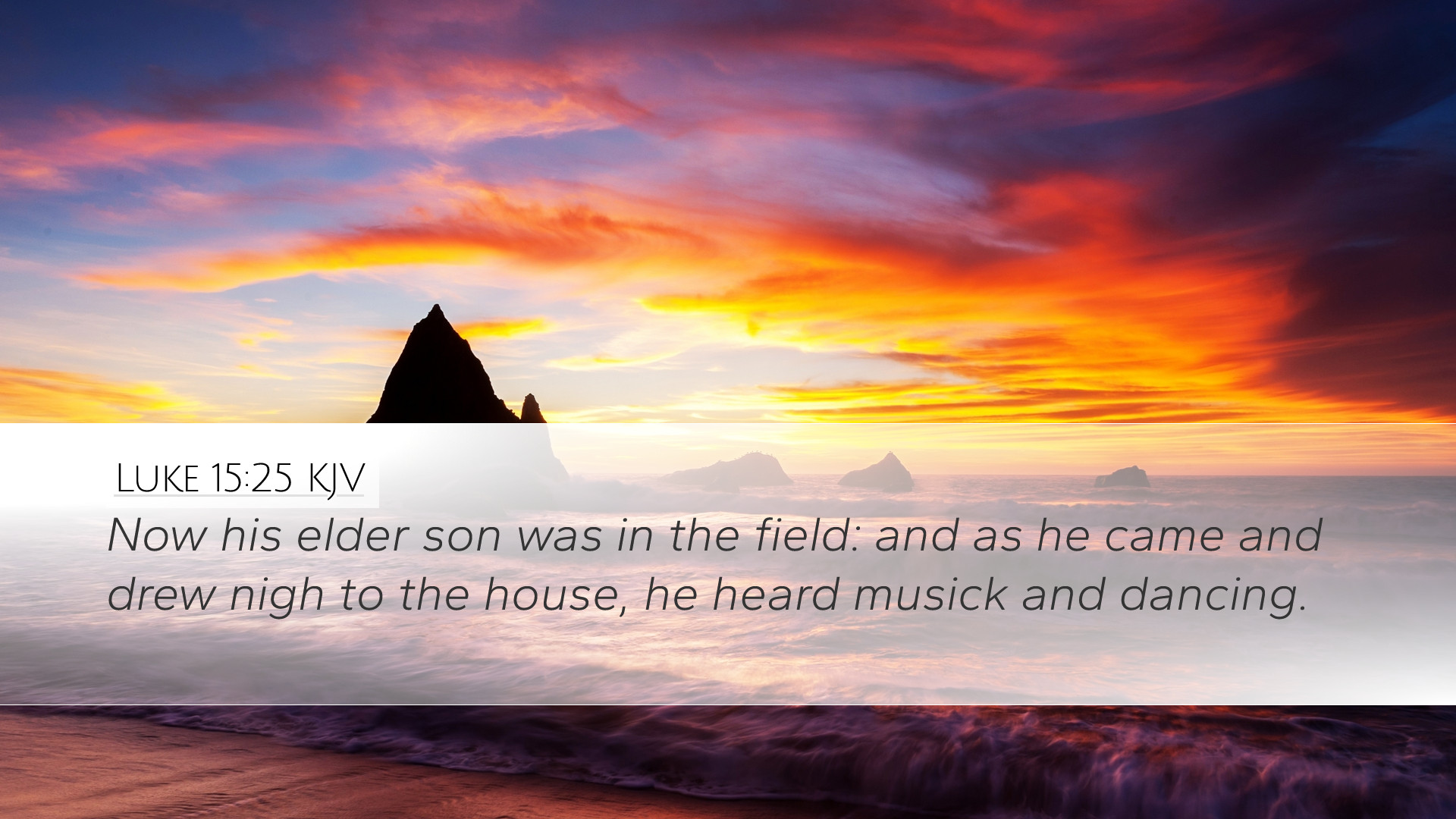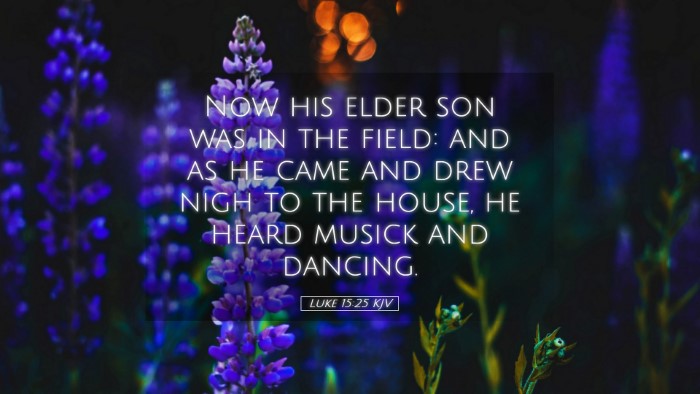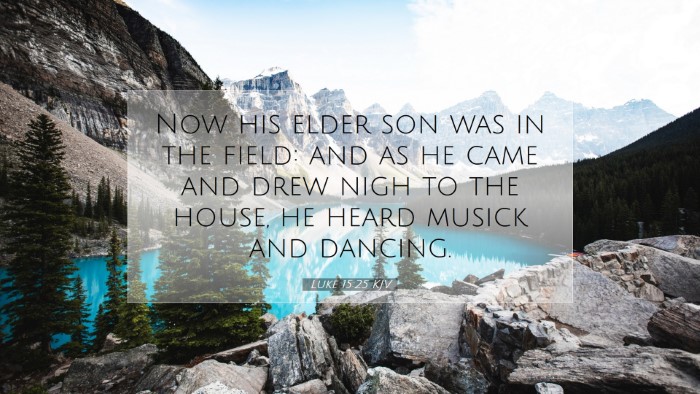Bible Commentary on Luke 15:25
Luke 15:25 comes from the well-known parable of the Prodigal Son, where Jesus illustrates deep theological truths about sin, salvation, and the character of God. This particular verse reads: “Now his older son was in the field. And as he came and drew near to the house, he heard music and dancing.” The context of this verse underscores the themes of jealousy, self-righteousness, and the neglect of one's relationship with the father.
Contextual Analysis
The parable is set within a discourse in which Jesus addresses the Pharisees and scribes, who were grumbling about His association with sinners. This is paramount in understanding the older brother's response and the overall moral of the parable.
Insights from Public Domain Commentaries
Matthew Henry's Commentary
Matthew Henry highlights the neglect of the older son who represents the Pharisees. He mentions that while the younger son squandered his inheritance, the older son worked diligently but failed to understand the joy of mercy and grace extended to the repentant. Henry notes:
- The older son was busy, yet he was blind to the joy of reconciliation occurring in the household.
- This illustrates the danger of being outwardly devoted while inwardly resentful and lacking in compassion.
Albert Barnes' Commentary
Albert Barnes provides a detailed exploration of the character of the older son, emphasizing his feelings of betrayal and anger upon the celebration of his brother's return. Barnes observes:
- The older son heard the music and dancing but did not participate, reflecting a serious disconnect from the joy that should characterize a family reunion.
- This illustrates the spiritual blindness that can occur in those who are diligently following the rules, yet are disconnected from the heart of God.
- The older brother’s attitude serves as a warning against self-righteousness and the resentment that can arise from perceived injustice.
Adam Clarke's Commentary
Adam Clarke offers a profound understanding of the socio-cultural implications of the older brother's actions. Clarke asserts that:
- It was culturally expected for the older son to be the first to respond to a significant event in the household, yet he chooses to remain outside.
- This refusal indicates a deep-seated pride and resentment toward his younger brother, showcasing a failure to reflect his father's generous heart.
- The celebration was not merely for the return of the younger son but for the restoration of a relationship, emphasizing the need for personal reconciliation with the father.
Theological Implications
Luke 15:25 prompts deep theological reflection, particularly regarding the nature of God as a father and the human condition of sin and grace. The interactions represented in the parable challenge various aspects of theological discourse:
- Mercy and Grace: The father's response to the repentant son demonstrates unconditional love and forgiveness. In contrast, the older son’s reaction highlights the struggle to grasp the depth of divine grace.
- Relationship vs. Ritual: The older son symbolizes those engaged in ritualistic practices without understanding the relational aspect of faith. The joy of the father's heart is not in following rules but in the restoration of sonship.
- Celebration of Redemption: The music and dancing symbolize the celebration in heaven when a sinner repents, urging believers to align their hearts with God’s joy over redemption.
Practical Applications
For pastors, students, theologians, and Bible scholars, Luke 15:25 offers several practical insights:
- Self-Examination: It's crucial to examine our motives and attitudes towards grace, especially when we see others being celebrated for their spiritual journeys.
- Embrace Celebrations of Grace: Actively participate in rejoicing over the redemptive work of Christ within the lives of others.
- Foster a Culture of Mercy: Promote a church environment that embraces those who repent and seeks to cultivate mercy, love, and compassion rather than judgment.
Conclusion
In conclusion, Luke 15:25 serves as a profound reminder of the dangers of self-righteousness and highlights the necessity of understanding and celebrating God's grace. The commentary from public domain sources such as Matthew Henry, Albert Barnes, and Adam Clarke collectively emphasizes the importance of a heart aligned with the Father and the joyous response that accompanies redemption. This verse challenges readers to not only understand their position before God but to fully engage in the divine celebrations of His grace, thus transforming both personal life and congregational culture.


